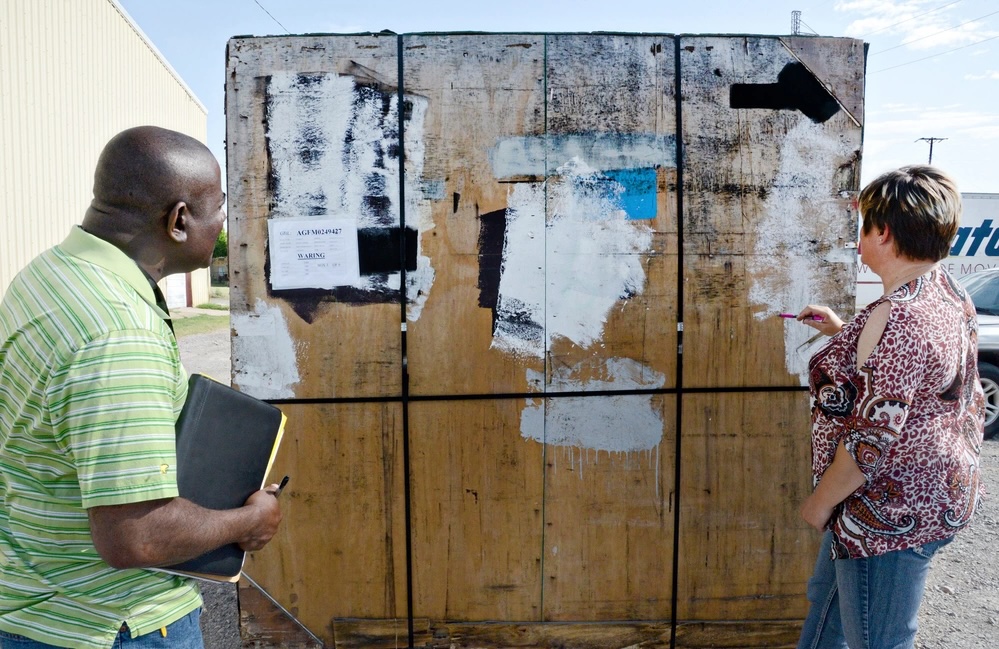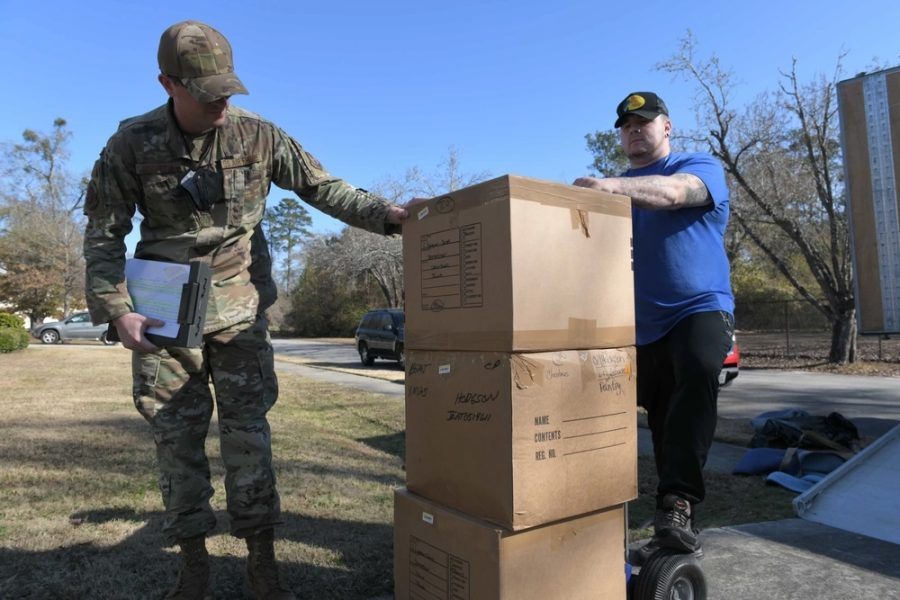The top civilian in charge of Air Force and Space Force personnel matters wants to make moving between permanent assignments less stressful for Airmen, Guardians, and their families, and he wants to do it fast.
Alex Wagner, assistant secretary of the Air Force for manpower and reserve affairs said he and a cross-functional team at Air Force headquarters were working on a batch of “initiatives, policy changes, financial incentives” and a service member’s bill of rights with movers that he wants in place by the permanent change of station (PCS) season next summer.
“In 76 years of the United States Air Force, we have not figured out how to move people without having all of your stuff broken, without your movers holding your things hostage, without creating extra expenses, stress,” Wagner said to a wave of applause on Aug. 13 at a panel on quality of life at the Air Force Sergeants Association’s Professional Education & Development Symposium in Houston.
“It is mind-blowing to me,” said the assistant secretary.
While he did not provide details on specific initiatives, Wagner’s comments address a long-running theme of PCS horror stories. Over the years, service members and their families have reported moving companies attempting to bribe them to leave a positive review of their work; losing or stealing boxes or entire shipments; letting rainwater soak household goods and cause mold damage; not delivering shipments for months or more, and other hardships.
In recent years, family pets died aboard PCS flights. Only about 77 percent of service members reported satisfaction with their household goods move in 2023, which translates to several thousands of service members left unhappy, according to a Department of Defense press release. To make matters worse, in 2023, many Air Force families were left in limbo when the service ran out of personnel funding and had to delay PCS moves and stop awarding new bonuses.
“Plans to sell or buy a house or car, enroll children in schools and daycares, transition jobs for spouses and partners, or deliver babies in known or planned locations evaporated under the PCS pause,” wrote RAND political scientist Kelly Atkinson in a commentary at the time.

This summer, U.S. Transportation Command began implementing a new contract it says will improve the PCS shipment experience. The Global Household Goods Contract (GHC) hired a single company, HomeSafe Alliance, to coordinate the scheduling, packing, and moving functions performed by hundreds of other companies. The GHC is meant to improve communication, reduce wait times, and increase transparency for shipments through new mobile tracking tools.
HomeSafe also had to stand up an academy to train its subcontractors to provide a “standardized” moving experience, according to the DOD. The new GHC was limited to just 15 military installations this year, but the department hopes feedback from the initial moves will inform wider adoption of the contract.
If Wagner is successful, other changes may be on the way for Airmen and Guardians. The assistant secretary said he is working with Chief Master Sergeant of the Air Force David Flosi and Chief Master Sergeant of the Space Force John Bentivegna to craft effective changes. Other issues he is working on include spouse employment, child care, health care, and recruiting.
“We should be able to figure this out,” he said about PCS moves. “That is one of the big strategic initiatives that I have said ‘I want things in place for summer PCS season 2025.’ More to follow on that.”
